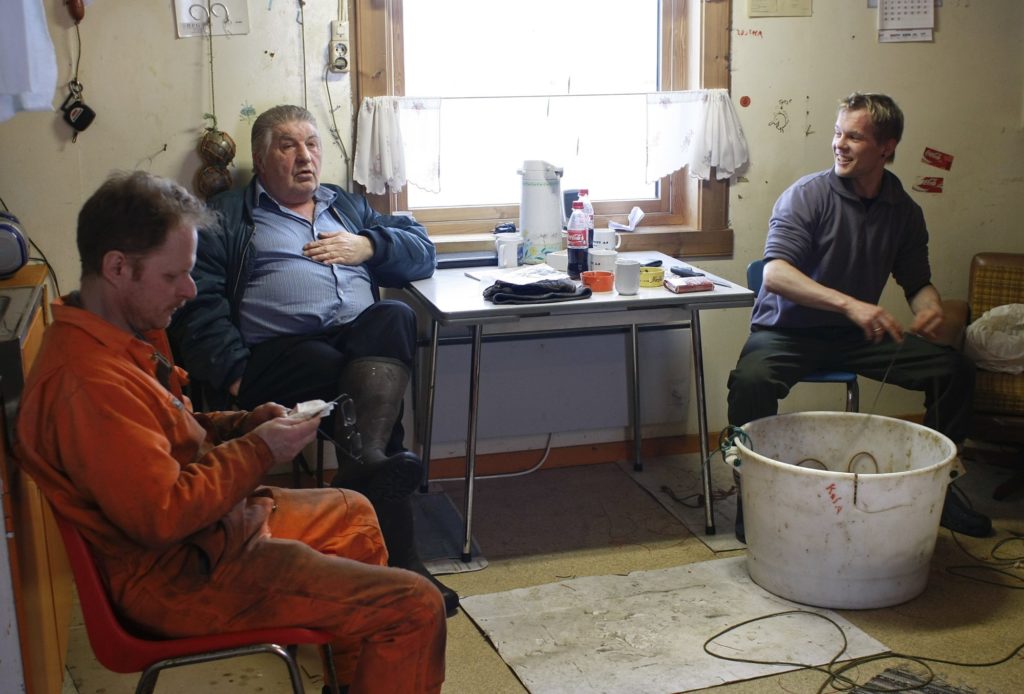This working group elaborates the theme ’Social justice and rural spaces and places’ and identifies the ’rural’ as coastal and archipelago communities, including those in inland water systems.
Many of these communities have become transformed towards post-productivist places, where leisure use and nature conservation have become significant elements of every-day life. On the other hand, productive use of natural resources, such as fishing and fish farming, have recently been reinvented in ‘blue growth’ policies that e.g. aim at increasing long-term sustainable food production from the oceans, creating challenges and opportunities for coastal communities. The objective is to gather social scientists from various disciplines and regions to discuss coastal challenges and scenarios in the wake of blue growth initiatives (e.g. aquaculture, tourism, local knowledge practices, sense of place and identities). The working group aims at building a forum that put emphasis on how social transformations and new policies influence rural coastal communities and reflects the opportunities for local participation and collaborative knowledge production.
The goal for the working group is to establish a continuously working ESRS Research and Study group of ’Coastal, Maritime and Fishery Studies’.
The topic focuses on challenges and success stories illuminating the changing and complex interactions between fisheries, recreation and nature conservation in European coastal communities. In the post-productivist setting, the local coast- and sea-life is affected, for instance, by recreational fishers, leisure boaters, tourists and summer cottage dwellers where new natural resource user groups mold the local culture, and overall contribute to the local economy. In some cases, the history and cultural traditions – such as telling fishing stories, providing accommodation in old fisher houses or productions and selling local food directly to consumers – have been harnessed for creating place-based tourist attractions.
At the same time when coastal fishers and other community members adapt livelihood strategies to cope with the rapidly changing local settings, governance systems and various policies, e.g. rural-, fisheries- and environmental policies, affect these endeavors. The promoters of ‘blue growth’ have put coastal regions in the front seat to ‘save the world’ by securing sustainable food production. An important question is how the investments in blue growth affect or revive local livelihoods and well-being in European coastal communities. Another topical coastal question is connected to neo-liberal fisheries policies, which are claimed to complicate the opportunities for small-scale coastal fishing vis-à-vis large scale industrial fisheries. At the same time however, new configurations can be seen between place and the fishing sector for example in the proliferation of Fisheries Local Action Groups. Also, environmental policies have become important e.g. by affecting fish farming activities, which are important by promoters of the blue growth. We invite research within the following sub-themes:
- New coastal income sources, livelihoods and cultures – diverse economies
- Cultural aspects of fishing and acceptance of new means and methods (catch & release etc.)
- Social justice and gender roles
- Fishing, tourism and coastal pluriactivity; combinations of different “industries” and value creation for local communities (harnessing fishing history in tourism, local food production etc.)
- The effects of second home living in coastal communities
- Challenges and opportunities created by fisheries, environmental and rural policies
- Blue growth and seafood – saving the world and coastal livelihoods?
- Governance of aquaculture, capture fishing and climate change
- The impact of the Fisheries Local Action Groups
- Participatory methods – in rural coastal research
- In practice and in theory
- Creation of local knowledge
Abstracts
Working Group Session 1 Wed 09:00 – 10:30
- Kristina Likhacheva – Coastal fishery communities of the Baltic sea in front of new challenges: a case of the Izhorian people of Russia
- Lydia Martens – Fragile livelihoods: the challenges and contradictions of tourism, conservation and fish farming in coastal crofting communities in North-West Scotland
- Hillevi Strand – Migrantkollektivet – the migrant worker community in the fishing industry of Norway
- Michal Lostak – Tradition as an Innovation (fishery between the past and future: the Czech case)?
- Richard Freeman – Gender roles in small-scale fisheries and the impact of Fisheries Local Action Groups: a comparative case study of three EU countries
Working Group Session 2 Wed 11:00 – 12:30
- Päivi Eskelinen – Blue wellbeing services as new means of income for fisheries: experiences from pilot projects
- Liv Toril Pettersen – Keeping it in the family» – ownership and succession in family business in fisheries and fish farming
- Maria Assunta D’Oronzio, Gianluca Gariuolo and Maria Carmela Suanno – Resilience strategy of a fisherman community
- Trude Borch – Aquaculture attitudes at northern latitudes
- Pekka Salmi & Kristina Svels – Small-scale fishers’ social struggle for survival: Collaboration in addressing the seal and cormorant conflicts along the Baltic Sea coast.
Working Group Session 3 Thur 09:00 – 10:30
- Lucia Tudini – Can Stakeholders Cope with Fisheries Regulation? A Case Study of Co-management in Certain Territorial Waters of Italy
- Bente Sundsvold – Coastal knowledge transformations in the making
- Maiken Bjørkan – Contested coastal zone governance – ensure legitimacy in the face of disagreement/conflict
- Jacob E. Lipsman – Contentious Politics and Coastal Erosion: A Critical Examination of Sustainable Fisheries Management in Southeast Louisiana, USA

